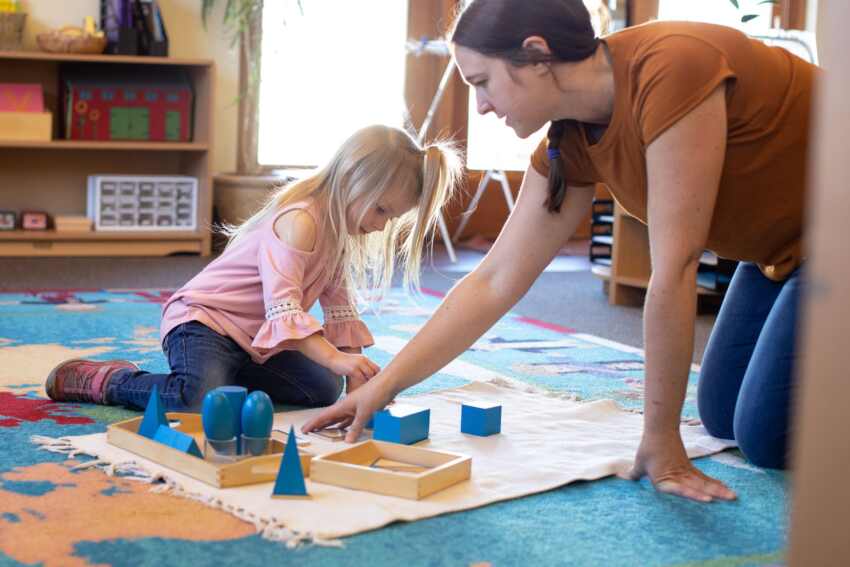Developing Mathematical Skills: Montessori Measurement Activities for Elementary Students
Developing Mathematical Skills: Montessori Measurement Activities for Elementary Students
Introduction
Mathematical skills are essential for a child’s development. The Montessori method provides hands-on activities that engage elementary students in learning math concepts. One crucial area of mathematics is measurement. Montessori measurement activities help children understand the properties of different objects and develop a strong foundation in mathematical concepts.
The Importance of Measurement
Measurement is an important mathematical skill as it enables children to understand and compare different quantities, sizes, and dimensions. By engaging in measurement activities, students learn to make precise observations, estimate, and acquire a sense of scale and proportion.
Montessori Measurement Activities
The Montessori approach to teaching measurement involves using concrete materials and integrating practical life skills. Here are some examples of Montessori measurement activities for elementary students:
Measuring with Cubes
Using interlocking cubes, children can measure the length and width of various objects. This activity helps develop their understanding of units of measurement and strengthens their spatial awareness.
Measuring with Rulers
Introducing rulers allows students to measure objects with more precision. They can measure the length, width, and height of items, comparing their sizes using both standard and non-standard units of measurement.
Estimation Games
Engaging in estimation games allows children to develop their ability to approximate measurements visually. They can estimate the length of objects, the capacity of containers, or the weight of different items. The Montessori approach emphasizes the process of estimation, encouraging students to refine their skills over time.
Measuring Liquid Volume
Through measuring liquid volume, children learn about capacity and become familiar with different units of measurement, such as liters and milliliters. Using graduated cylinders, they can pour water and other liquids to compare their amounts accurately.
Measuring Weight
Measuring weight introduces children to the concept of mass. They can use scales or balance beams to compare the weight of objects. This activity helps develop their understanding of heavier and lighter objects, as well as the concept of balance.
Benefits of Montessori Measurement Activities
Engaging in Montessori measurement activities offers several benefits for elementary students:
Hands-on Learning
The use of concrete materials in measurement activities reinforces children’s understanding of mathematical concepts by providing tangible experiences. Hands-on learning enhances their engagement and makes abstract ideas more accessible.
Sense of Mastery
Montessori measurement activities allow students to proceed at their own pace. As they successfully complete each activity, they develop a sense of mastery and gain confidence in their mathematical abilities.
Integration of Practical Life Skills
Montessori measurement activities not only teach mathematical concepts but also integrate practical life skills. Students learn the importance of precision, accuracy, and order as they engage in measuring and comparing objects.
Transferable Skills
Developing measurement skills goes beyond the realm of math. Children learn transferable skills such as critical thinking, problem-solving, and logical reasoning. These skills will benefit them in various areas of their academic and personal lives.
Measurement is a fundamental aspect of mathematics. Montessori measurement activities provide elementary students with rich learning experiences that go beyond simple calculations. By engaging in hands-on activities, children develop their mathematical skills, critical thinking abilities, and practical life skills. The Montessori method ensures that learning is meaningful, enjoyable, and focused on the child’s individual needs.
Nidhin
For More Details Call: +917510220582
